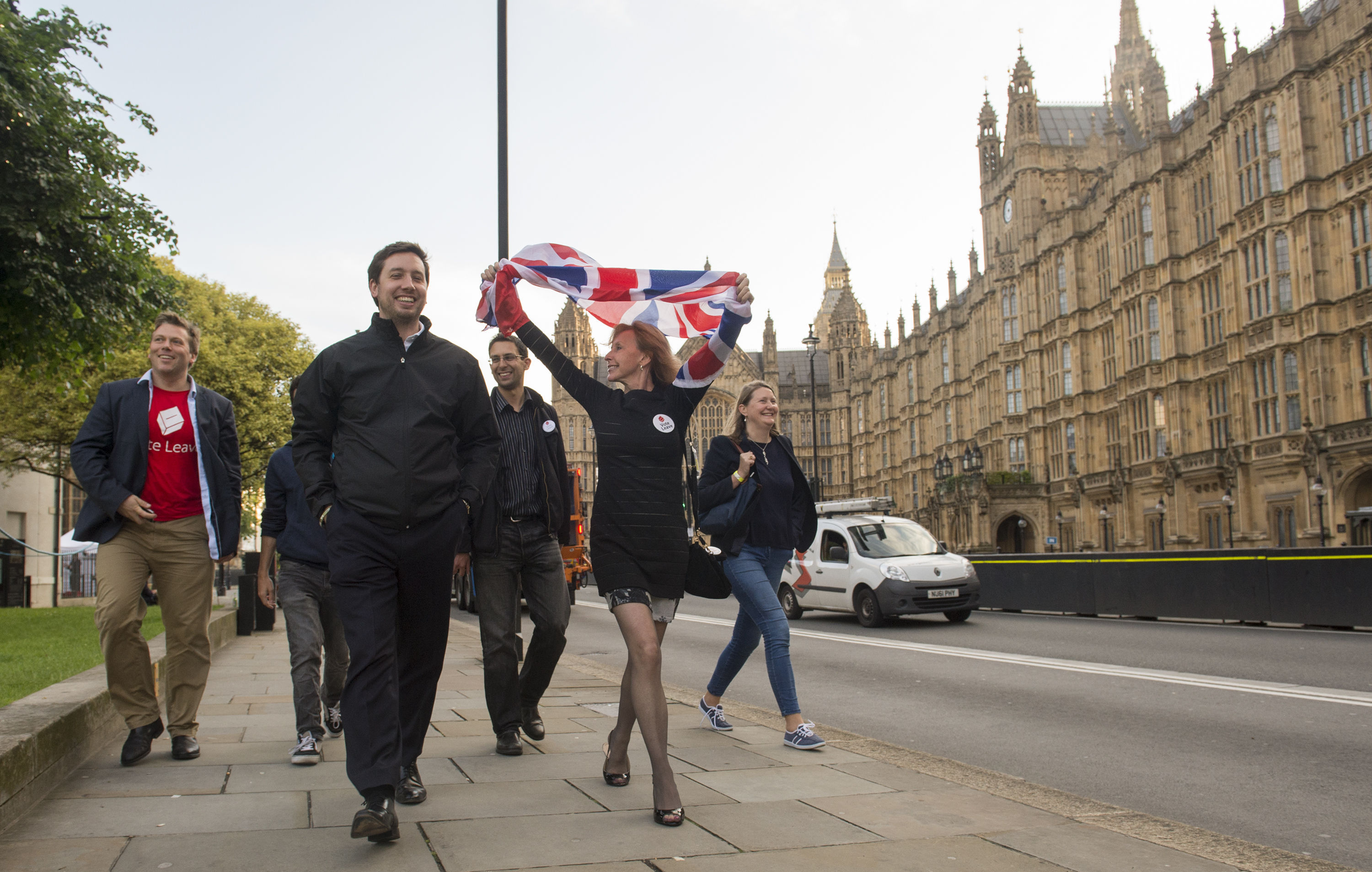The decision of the British people to leave the European Union is a “national vote of no confidence” in the country’s leadership, an academic expert has said.
It was a rejection of the warnings from leading politicians, economists and big business, and exposed the deep gap between the views of the voting public and their representatives, a conference in London heard.
The fallout from the Brexit vote was discussed by academics hours after the result was announced.
Dr Robert Saunders, a lecturer in modern British history at Queen Mary University of London said the result saw the eruption of a crisis which had been growing within British society.
He said: “I think the referendum has exposed, but not created, a crisis in our representative system and that crisis I think has been building for some time, but last night it erupted.”
He said the electorate had decided against the judgment of the Prime Minister, Jeremy Corbyn, the majority of the cabinet and most MPs.
“The chasm between the views of the electorate and the people they have been voting for has been pretty brutally exposed,” he said.
He added: “It seems to me what happened last night was a national vote of no confidence not just in David Cameron, but in MPs, trade unions, big business, in universities, economists and experts of all kinds.”
Dr Saunders said British history since the 1970s, had the UK not been part of the EU, would have been “radically different” in many ways, citing examples including the Northern Ireland peace process, gay rights, and de-industrialisation.
He added: “I think we are going to feel the effects of Brexit in all sorts of areas that we are not even thinking about at the moment and I think it’s going to take several years for that to become apparent.”
He said, despite his own disappointment at the vote to leave, the ability of people in Britain to make such a decision without violence is “a remarkable expression of democracy”.
The vote raises questions for all the nations within the UK, said Michael Kenny, a professor of politics at the university.
He said there are a number of “disaffected, disenchanted voters” in England, and added that it is clear Scotland is moving in a different direction given its overwhelming vote in favour of remaining in the EU.
On Northern Ireland, Prof Kenny said: “There is real potential that this result produces significant further instability.”
He said the creation of a “hard border with the Republic of Ireland which in many ways goes against the strengths that have actually helped make the peace process stick” could be “a really big issue” for Northern Ireland.
Sionaidh Douglas-Scott, of the university’s law centre, expressed concerns for the possible effects on free movement of EU citizens.
Professor Douglas-Scott said: “I think it’s quite a worrying situation”, adding that it is “crucial” the right agreement is reached under the Article 50 process on EU withdrawal.
International law offers limited protection, she said, adding that national laws are “not as generous” as EU protection legalisation when it comes to the rights of people to move between countries.



